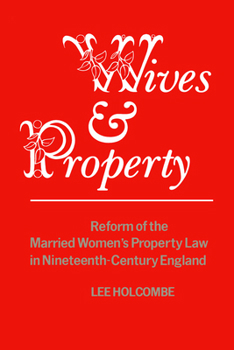Wives & Property: Reform of the Married Women's Property Law in Nineteenth-Century England
In the 1870s Millicent Garrett Fawcett had her purse snatched by a young thief in London. When he appeared in court to testify, she heard the young man charged with 'stealing from the person of Millicent Fawcett a purse containing 1 18s 6d the property of Henry Fawcett.' Long after the episode she recalled: 'I felt as if I had been charged with theft myself.'
The English common law which deprived married women of the right to own and control property had far-reaching consequences for the status of women not only in other areas of law and in family life but also in education, and employment, and public life. To win reform of the married women's property law, feminism as an organized movement appeared in the 1850s, and the final success of the campaigns for reform in 1882 was one of the greatest achievements of the Victorian women's movement.
Dr Holcombe explores the story of the reform campaign in the context of its time, giving particular attention to the many important men and women who worked for reform and to the debates on the subject which contributed greatly to the formulation of a philosophy of feminism.
Related Subjects
Europe Feminist Theory History Law Social Science Social Sciences Wales Women's Studies




